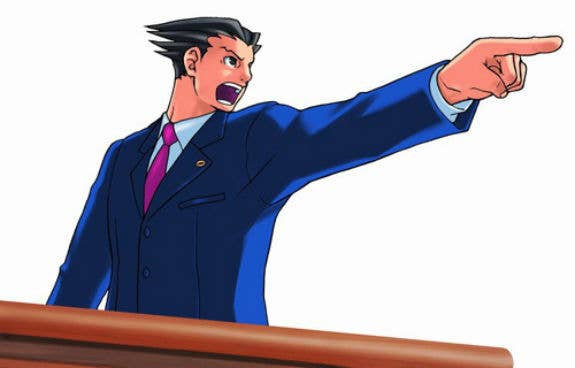Zynga slams EA in court filing, calls them "desperate"
The social giant's responses include a counterclaim against EA
Zynga filed legal responses to EA's copyright infringement lawsuit today, asking the judge to strike parts of EA's complaint, answering EA's complaint and demanding a jury trial, and filing a counterclaim against EA alleging breach of contract and violation of California law.
Zynga released the following statement: "Today we responded to EA's claims which we believe have no merit. We also filed a counterclaim which addresses actions by EA we believe to be anticompetitive and unlawful business practices, including legal threats and demands for no-hire agreements. We look forward to getting back to focusing all our efforts on delighting our players." -Reggie Davis, General Counsel, Zynga.
EA's response: "This is a predictable subterfuge aimed at diverting attention from Zynga's persistent plagiarism of other artists and studios. Zynga would be better served trying to hold onto the shrinking number of employees they've got, rather than suing to acquire more." - EA spokesman John Reseburg.
"Zynga would be better served trying to hold onto the shrinking number of employees they've got, rather than suing to acquire more"
EA spokesman John Reseburg
In their first filing, Zynga is asking the judge to strike parts of EA's complaint, stating that they "serve no purpose other than to try to portray Zynga in a bad light" and can't be used to prove EA's complaint. Zynga's attorneys want the judge to remove allegations of copyright infringement related to other games not part of the complaint, and get rid of the copyright registrations for games that are attached as exhibits. Zynga's filing is pointed: "In sharp contrast to the confined inquiry that single claim requires, EA's Complaint is an unrestrained ramble of immaterial, inflammatory, and prejudicial allegations that have no bearing on the issue at hand. These allegations are so patently irrelevant to the case that they appear geared more towards inciting the press coverage they generated than contributing to legal analysis. Zynga therefore moves to strike them."
The second filing by Zynga specifically responds to EA's complaint, and denies everything. In specific terms, Zynga lays out a history of what they call 'life simulation' games, pointing to Activision's Little Computer People from 15 years ago, and Zynga's own YoVille, released in 2008, as predecessors, among others. "It was Activision-not EA-that first developed the ideas found in The Sims Social, and it was Zynga-not EA-that first brought the concept to Facebook" says the filing.
"EA's Complaint is an unrestrained ramble of immaterial, inflammatory, and prejudicial allegations that have no bearing on the issue at hand"
Zynga's court filing
Going further, the filing ridicules the very idea that Zynga would even want to copy The Sims Social. "EA's lawsuit ultimately rests on the implausible assumption that Zynga would launch a "copy" of a game that had failed months before Zynga released its own game. By the time Zynga launched The Ville, the user base for EA's The Sims Social had plummeted, and Zynga is informed and believes that EA already had relegated the game to its India Studio where EA games in decline are sent to be inexpensively maintained and ultimately discontinued."
Zynga denies all of EA's claims and asks the judge to rule in their favor and award them attorney's fees as well, and to have a jury trial for any issues that are not resolved or thrown out. At least EA and Zynga agree on one thing: They both want the issue decided in San Francisco.
Zynga's third filing brings a counterclaim against EA, alleging breach of contract and that EA violated California law concerning hiring. Zynga notes that "EA knows that none of the former EA executives it names in its lawsuit - John Schappert, Jeff Karp, and Barry Cottle - transmitted any EA confidential information to Zynga because EA itself was involved in, and approved of, the exhaustive measures undertaken to ensure that did not happen."
" EA has not been able to successfully compete in the social gaming space and was losing talent, particularly to social gaming leader Zynga. Desperate to stem this exodus, EA undertook an anti-competitive and unlawful scheme"
Zynga's court filing
Zynga's allegations against EA paint an unflattering picture of the rival company. "The truth is that despite years of trying to compete, and spending more than a billion dollars on acquisitions, EA has not been able to successfully compete in the social gaming space and was losing talent, particularly to social gaming leader Zynga. Desperate to stem this exodus, EA undertook an anti-competitive and unlawful scheme to stop Zynga from hiring its employees and to restrain the mobility of EA employees in violation of the spirit of the antitrust laws and California public policy. EA sought, by threat of objectively and subjectively baseless sham litigation, what it could never lawfully obtain from Zynga - a no-hire agreement that would bar Zynga's hiring of EA employees."
The counterclaim against EA is fascinating reading, offering a glimpse inside the high-stakes battles for key employees that is going on all over the high-tech industry. This legal battle is going to be a long one, as neither company shows any sign of compromise on these issue. It's not just a legal battle; it's a public-relations battle between two companies that are both trying to burnish their images with customers and investors. Yes, you could say it's on like Donkey Kong... but that might run afoul of yet another company's trademarks.

